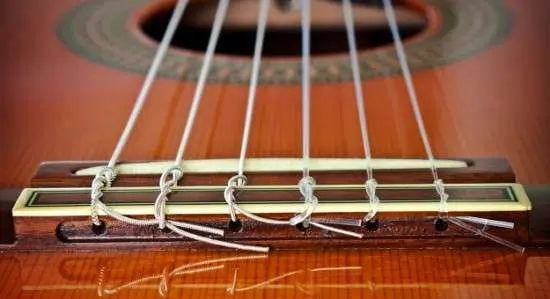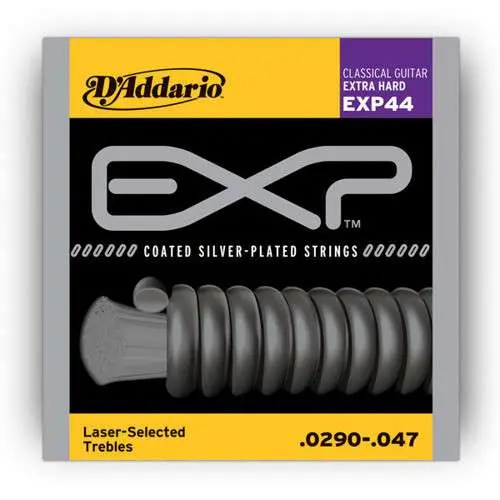
How to choose classical guitar strings?
stuff
Traditionally, pure or rectified nylon has been used to make treble strings. Pure nylon has a lighter tone, and rectified nylon has a rounder and darker tone. It is a matter of taste which kit to choose. I can advise that if we have a bright-sounding guitar (e.g. with a spruce top), it is worth getting rectified nylon strings to even out the sound. Pure nylon strings can sting your ears on a lighter-sounding guitar. On the other hand, rectified nylon strings can muddy on a darker sounding guitar (e.g. with a cedar top), and on the same guitar, pure nylon strings can balance the sound. There are also titanium and composite strings, which have a lighter tone than pure nylon, great for less classical use but also for dark sounding instruments. For bass strings, the most common are silver-plated copper wrapped nylon strings, which have a rather dark tone, and bronze (80% copper and 20% zinc) strings with a lighter tone.


Wrap
There are two types of wraps: round wound and polished. Wrapped strings sound brighter but produce more hum. This means that you can hear what you do with your hand on the fingerboard. These are, for example, slides when using the slide technique. The smooth wrapper eliminates unwanted hums, while at the same time darkening the sound.
Stretch
There are different types of string tension available, the most common being low, medium and high. For beginners, low tension strings will be best. However, it should not be forgotten that such strings often hit the fingerboard. This is the main reason why professionals use higher strings. However, there is no need to bother, because you should have sufficient freedom in pressing the strings. However, keep in mind that guitars are also different, and some may handle low tension strings better and some high tension strings.
Protective wrapper
Of course, classical guitars must also have strings with an additional protective wrapper. It does not change the sound, but it keeps it fresh for much longer. It is worth buying such a set on a longer concert tour. Thanks to this, we will not have to replace the strings every now and then, and the sound will still be kept at a high level.


How often should I replace the strings on the classical guitar?
Nylon is a material that breaks much less frequently than the metal alloys used in electric and acoustic guitars. The sound of nylon strings becomes muffled over time, just like with other strings. Generally, it is recommended to replace the strings every 3-4 weeks when played intensively, and 5-6 weeks with less intensive playing. Changing strings every 2 months is now considered rare. You should especially remember about string replacement in studio and concert situations. Old strings can completely ruin the sound of even the best classical guitar. Most professionals replace the strings every gig or recording session. Strings with an additional protective sleeve can be changed less often because they stay fresh for a much longer time.
NOT for acoustic guitar strings
Under no circumstances should acoustic guitar strings be attached to a classical guitar. Putting on such strings can turn a well-functioning instrument into disrepair. The string tension of an acoustic guitar is too tight for a classical guitar. Classical guitars do not have a metal bar in the neck that can take this string. Acoustic guitars have such a rod. There is a reason why strings for classical and acoustic guitars are completely different.
Summation
It is worth checking out a few or even a dozen or so sets of different strings before picking them out. With the help of this guide, you will know what to expect from which strings. It should not be forgotten that strings from different manufacturers, made of the same materials and with the same type of wrapper, will still differ from each other. Each manufacturer uses different technologies, guidelines and standards for the production of strings. It is very important to experiment yourself and finally choose your favorite string set that works best with a given classical guitar.





